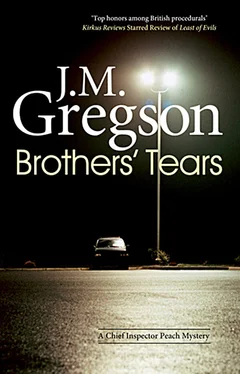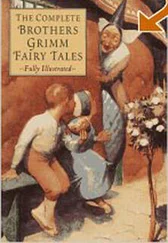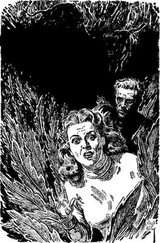J. Gregson - Brothers
Здесь есть возможность читать онлайн «J. Gregson - Brothers» весь текст электронной книги совершенно бесплатно (целиком полную версию без сокращений). В некоторых случаях можно слушать аудио, скачать через торрент в формате fb2 и присутствует краткое содержание. Год выпуска: 2013, Издательство: Severn House Publishers, Жанр: Полицейский детектив, на английском языке. Описание произведения, (предисловие) а так же отзывы посетителей доступны на портале библиотеки ЛибКат.
- Название:Brothers
- Автор:
- Издательство:Severn House Publishers
- Жанр:
- Год:2013
- ISBN:нет данных
- Рейтинг книги:4 / 5. Голосов: 1
-
Избранное:Добавить в избранное
- Отзывы:
-
Ваша оценка:
- 80
- 1
- 2
- 3
- 4
- 5
Brothers: краткое содержание, описание и аннотация
Предлагаем к чтению аннотацию, описание, краткое содержание или предисловие (зависит от того, что написал сам автор книги «Brothers»). Если вы не нашли необходимую информацию о книге — напишите в комментариях, мы постараемся отыскать её.
Brothers — читать онлайн бесплатно полную книгу (весь текст) целиком
Ниже представлен текст книги, разбитый по страницам. Система сохранения места последней прочитанной страницы, позволяет с удобством читать онлайн бесплатно книгу «Brothers», без необходимости каждый раз заново искать на чём Вы остановились. Поставьте закладку, и сможете в любой момент перейти на страницу, на которой закончили чтение.
Интервал:
Закладка:
He certainly looked much older. His hair had thinned early; he had chosen to accentuate that by letting it grow long and unkempt. He occasionally clipped it himself, but he never visited a barber. His complexion was poor, with spots dotting his forehead and his chin. His eyes were pale blue; he kept them for the most part lifeless and unrevealing above pallid cheeks. It was a long time since he had seen much sunlight.
No one in the squat suspected him. He was just another user to them. They survived from day to day, even from hour to hour, as they awaited their next fix and schemed how to get it. You didn’t pay much attention to your neighbours in the squat. Your whole life centred around yourself and your needs. The others were vaguely accepted as companions, but not friends. Entitled to a roof over their heads, as you were. If they became rivals for the next fix, you treated them as enemies and took whatever steps you needed to take. There was no loyalty here which could survive addiction. The people Crook lived with were dangerous and unpredictable.
Jason knew all of this and lived with it. He was a user himself, now. The police rules said that you mustn’t do anything against the law as you gathered information, but that was impossible. He wasn’t an addict, though he pretended to be and aped the behaviour of those around him who were. But you needed to be a user, if you were to convince the dangerous men who supplied, the ones you were here to find out about. He took a little horse by mouth. And he injected himself with water: he had marks on his arm which he hoped signified he was a regular heroin injector to those he allowed to catch a glimpse of them.
He tried not to move when he’d had the horse. You were in danger when you were high; you felt that dangerous overconfidence which led you to take chances. It was now the middle of the day in the squat. It was the only one of a terrace of derelict houses awaiting demolition which still had a door and most of its windows. In the world outside, there was patchy sun and no immediate prospect of rain. Yet all but two of the squatters were in the house. Fresh air and life in the open had no appeal for them. They were addicts, with nowhere to go between fixes.
When the five men and three women who lived here went out at all, it was usually in the evenings. Darkness seemed a natural environment for them, but that was not the only reason. All eight of them were small-time dealers. Their supplies were tightly controlled and they made little profit — the rich pickings of this sinister four-billion-pound industry went to men much higher up the chain than they were. The wretched denizens of the squat dealt merely to support their habit; they were allocated and sold just enough to provide the drugs they needed for themselves.
Jason Crook emerged cautiously at the rear of the house and stood blinking for a moment against the brightness of the light. His head switched from right to left, like that of a rodent checking that it was unobserved. Then he set off to fulfil his assignment, passing through streets where few vehicles ventured and litter accumulated steadily in the gutters. His battered trainers were serviceable still; he moved with the rapid, shuffling gait of someone older than he was. His head was low and his eyes flicked rapidly to right and left as he went, to make sure he was not being followed.
He had chosen the meeting place himself. The van had been there for five days now, at the end of a street where the houses had already been felled and the bulldozer had levelled the site ready for the builders. It had probably been dumped there by joyriders, or an owner whom it had finally failed. The one wheel with a newish tyre had already disappeared from it, so that the van slumped crazily sideways. But Crook had already checked that the driver’s door opened.
His contact was waiting for him as he’d demanded. The man sat low in the passenger seat on the nearside, his face almost invisible beneath the cap pulled forward over his eyes. He was almost as unkempt as Crook, but his dirt was less ingrained. He was adopting a disguise, whereas the man who had come from the squat had been living his part for months.
The officer who sat in the passenger seat glanced at Crook as he slipped into place and shut the driver’s door. ‘You’ve done a good job on yourself. You look like a junkie.’
Jason didn’t reply, didn’t even smile. This man who had spoken didn’t feel like a colleague any more. Those wretched creatures in the squat weren’t colleagues, but he felt nearer to them than to this being from the real world. This was one of the hazards of working undercover. The people who volunteered for the work were almost by definition unbalanced. Some of them took on the lifestyle of the user so thoroughly that they became genuine addicts rather than undercover agents. They disappeared into the anonymous underclass which peopled the lower reaches of the drug world and were lost permanently to the police. The officer who was slumped anonymously in the driver seat of this stinking vehicle wondered if Crook was in danger of this.
As if he read that thought, Jason said while still gazing straight ahead at the filthy windscreen, ‘I got the name of one of the big men for you. This man’s taking control of the dealers round here. He’s taking over Strangeways.’
The big jail in Manchester was a hotbed of drug use, as are most of the major prisons in the brave new world of Britain. Controlling the supply of drugs and the network of dealers involved was lucrative in itself. It was also far more important among the barons of this sinister trade for its prestige value. The man who supplied Strangeways controlled much else as well. The men and women who worked for him as well as his rivals recognised that.
The inspector beside Crook said, ‘Give us the name. We’ll see if it tallies with the information we’re getting from other-’
‘O’Connor. James O’Connor.’ Jason wasn’t interested in the man’s garbage about other sources: he knew what he knew. ‘He’s taken over from Read. He’s planning to get bigger still.’
‘Right.’ The man in the passenger seat nodded. Jason Crook was out of the vehicle immediately, departing down the street with the same rapid shuffle with which he had arrived. The Drug Squad inspector watched him to the end of the road, waited another two minutes. That poor sod couldn’t know that O’Connor was dead, couldn’t know that the information he’d risked his life for was almost valueless now. Crook was sunk so deep into his role in the squat that he probably hadn’t read a newspaper or heard a radio for weeks.
James O’Connor wouldn’t be extending his empire any further. But the fact that he’d been spreading his wings in dangerous skies had brought some big criminal names into the possibilities for his murderer.
Dominic O’Connor was slimmer and shorter than his brother. More flying winger than flanker, a rugby man might have said. DCI Peach was not a rugby man. Soccer was his winter game; he’d supported Brunton Rovers through thick and thin — and there’d been plenty of thin lately.
He studied his man unhurriedly, after he’d introduced himself and Clyde Northcott. Nervous, he reckoned, trying to look as if he wasn’t on edge but not succeeding. He liked that: people who were nervous gave more of themselves away. But you couldn’t read too much into it. Bereavement affected people in all sorts of ways and it was possible that this man had never been questioned by police before. That would make him different from his dead brother; James had had many exchanges with the police, but had been always been too wily to end up in court. He had even been helpful to them at times, when it suited his own agenda.
‘You never worked with your brother, Mr O’Connor?’
Читать дальшеИнтервал:
Закладка:
Похожие книги на «Brothers»
Представляем Вашему вниманию похожие книги на «Brothers» списком для выбора. Мы отобрали схожую по названию и смыслу литературу в надежде предоставить читателям больше вариантов отыскать новые, интересные, ещё непрочитанные произведения.
Обсуждение, отзывы о книге «Brothers» и просто собственные мнения читателей. Оставьте ваши комментарии, напишите, что Вы думаете о произведении, его смысле или главных героях. Укажите что конкретно понравилось, а что нет, и почему Вы так считаете.








![Евгений Матерёв - Музеи… или вдохновляющая музыка The Chemical Brothers [litres самиздат]](/books/437288/evgenij-materev-muzei-ili-vdohnovlyayuchaya-muzyka-th-thumb.webp)

